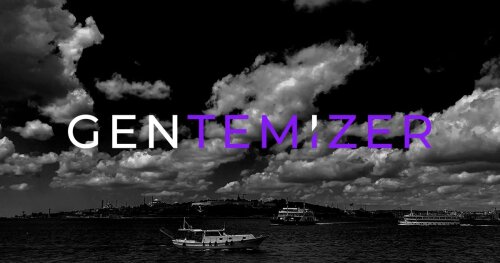Best Fintech Lawyers in Besiktas
Share your needs with us, get contacted by law firms.
Free. Takes 2 min.
List of the best lawyers in Besiktas, Turkey
About Fintech Law in Besiktas, Turkey
Fintech, short for financial technology, represents the intersection of technology and financial services, offering innovative solutions to traditional financial processes. In Besiktas, Turkey, the Fintech sector is rapidly emerging, driven by a growing tech-savvy population and supportive government policies. The area has become a hub for startups and established companies alike, seeking to capitalize on advancements in areas such as digital banking, mobile payments, blockchain, and cryptocurrency. However, this growth also means navigating a complex regulatory environment which is evolving to keep up with the innovations in financial technology.
Why You May Need a Lawyer
Engaging with Fintech, whether as a startup entrepreneur, an investor, or a consumer, can present various legal challenges. Here are some common situations where legal advice might be necessary:
- Regulatory Compliance: Ensuring adherence to local and international financial regulations, including licensing requirements and anti-money laundering regulations.
- Data Protection: Understanding obligations under data privacy laws and implementing best practices for handling sensitive financial and personal data.
- Contractual Agreements: Drafting, reviewing, and negotiating contracts with partners, clients, or vendors to protect your interests.
- Intellectual Property: Protecting proprietary technology and innovative processes against infringement.
- Dispute Resolution: Resolving conflicts that may arise from transactions, partnerships, or consumer complaints.
Local Laws Overview
Besiktas, while part of Istanbul, is subject to national laws of Turkey which impact Fintech operations. Key legal frameworks include:
- The Payment and Securities Settlement Systems Law: Regulating payment services, electronic money institutions, and operations.
- Banking Law: Governing banking activities and requirements pertinent to Fintech companies engaging in digital banking services.
- Data Protection Law: Aligns with the EU's GDPR, focusing on the protection of personal data processed by Fintech companies.
- Capital Markets Law: Important for Fintech firms involved in investment services and activities.
- Commercial Code: Governs corporate matters for businesses operating within the Fintech industry.
Frequently Asked Questions
What is the process for obtaining a Fintech operating license in Turkey?
The process involves submitting an application to the Banking Regulation and Supervision Agency (BRSA) or the Central Bank, depending on the specific service, along with required documentation demonstrating compliance with regulatory standards.
Is there a regulatory sandbox available for Fintech startups in Turkey?
Yes, Turkey offers a regulatory sandbox through governmental initiatives, allowing Fintech startups to test their products under regulatory supervision without immediately complying with all regulatory requirements.
How are cryptocurrencies regulated in Turkey?
Cryptocurrencies are not recognized as legal tender, but their trading and use are allowed under certain conditions. The Central Bank has issued regulations to mitigate risks, primarily focusing on preventing money laundering and protecting consumers.
What are the data protection requirements for Fintech companies in Turkey?
Fintech companies must comply with the Personal Data Protection Law (KVKK), which includes obtaining explicit consent for data processing, ensuring data security, and notifying users in the event of a data breach.
Can international Fintechs operate in Turkey?
Yes, international Fintech companies can operate in Turkey but must comply with local regulations, often requiring the establishment of a local entity or partnerships with local firms.
What are the common legal risks faced by Fintech companies in Besiktas?
Legal risks include non-compliance with financial regulations, potential data breaches, intellectual property infringement, and consumer disputes over financial products and services.
How can a lawyer assist in protecting a Fintech startup's intellectual property?
A lawyer can assist by filing patents, trademarks, and copyrights, drafting non-disclosure agreements, and litigating against infringement.
What role does the Central Bank of Turkey play in regulating Fintech?
The Central Bank supervises payment services and electronic money institutions, issues regulations to safeguard financial stability, and oversees the implementation of monetary policy impacting Fintech operations.
Are there tax incentives for Fintech startups in Turkey?
The Turkish government provides several tax incentives for tech startups, including R&D tax rebates, which Fintech companies may be eligible for, along with potential grants and subsidies.
How important is compliance with AML regulations for Fintech companies?
Compliance with Anti-Money Laundering (AML) regulations is crucial to prevent legal penalties, protect the company's reputation, and foster trust among consumers and investors.
Additional Resources
Here are some resources and organizations in Besiktas, Turkey that can be helpful for those seeking legal advice in Fintech:
- Banking Regulation and Supervision Agency (BRSA)
- Central Bank of the Republic of Turkey
- Turkish Data Protection Authority
- Turkish Union of Chambers and Commodity Exchanges (TOBB)
- Istanbul Chamber of Commerce (ITO)
Next Steps
If you need legal assistance in the Fintech sector, consider the following steps:
- Identify your specific legal needs based on your role, whether as a startup, investor, or consumer.
- Research and contact a lawyer or law firm specializing in Fintech law in Besiktas or broader Istanbul region.
- Prepare documentation and outline your questions or issues before your consultation.
- Discuss fees and establish a clear agreement with your legal advisor on the scope of services.
- Stay informed by attending local Fintech events or workshops to network with professionals and keep up to date with industry changes.
Lawzana helps you find the best lawyers and law firms in Besiktas through a curated and pre-screened list of qualified legal professionals. Our platform offers rankings and detailed profiles of attorneys and law firms, allowing you to compare based on practice areas, including Fintech, experience, and client feedback.
Each profile includes a description of the firm's areas of practice, client reviews, team members and partners, year of establishment, spoken languages, office locations, contact information, social media presence, and any published articles or resources. Most firms on our platform speak English and are experienced in both local and international legal matters.
Get a quote from top-rated law firms in Besiktas, Turkey — quickly, securely, and without unnecessary hassle.
Disclaimer:
The information provided on this page is for general informational purposes only and does not constitute legal advice. While we strive to ensure the accuracy and relevance of the content, legal information may change over time, and interpretations of the law can vary. You should always consult with a qualified legal professional for advice specific to your situation.
We disclaim all liability for actions taken or not taken based on the content of this page. If you believe any information is incorrect or outdated, please contact us, and we will review and update it where appropriate.












